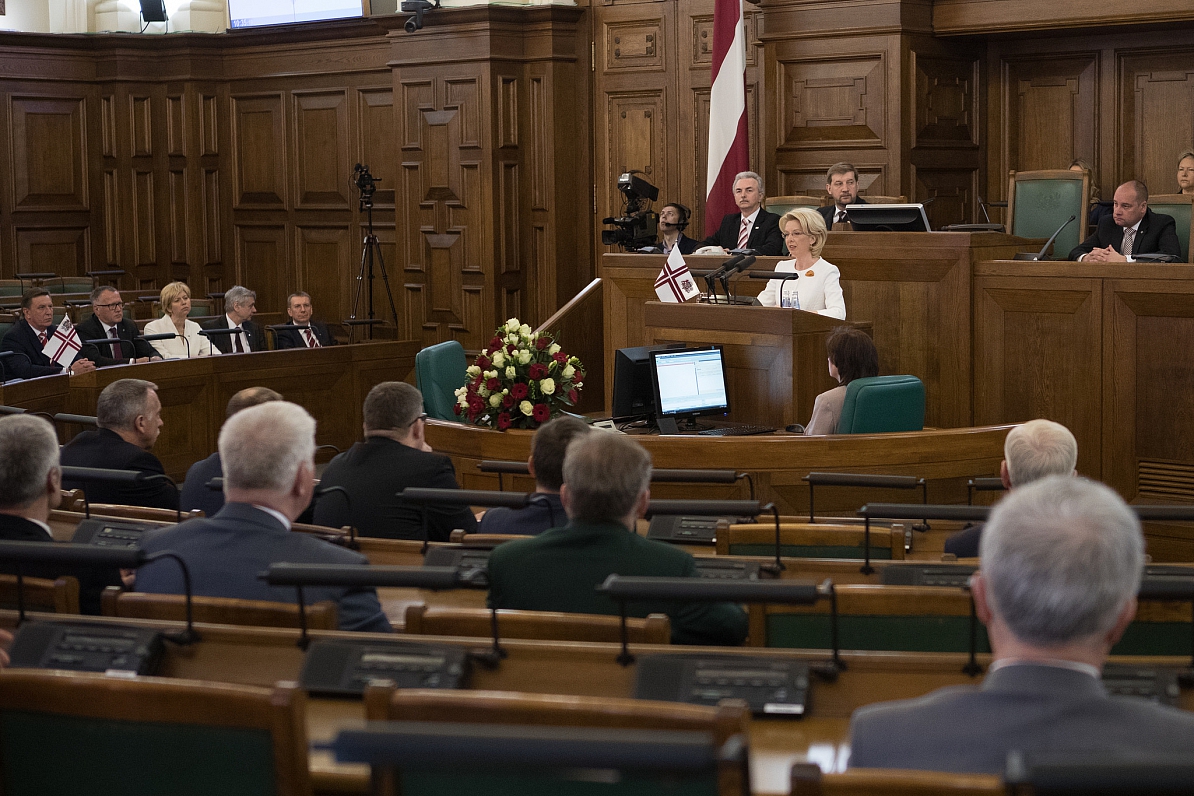The decision was made with 49 votes to 20, while 15 lawmakers did not participate in the vote. The decision was supported by lawmakers from the Harmony party, the Union of Greens and Farmers, the National Alliance, For Latvia From the Heart. Unity lawmakers, Ilmars Latkovskis and Romands Naudins (National Alliance) voted against the decision.
Returning the amendments to the parliament Vejonis noted that the legislative amendments developed alongside the ongoing liquidation process of Trasta Komercbanka and court’s decisions on appointing the administrator, cause suspicion of the wish to affect these processes.
As reported, Saeima in early June adopted the amendments to the Credit Institutions Law in the final reading. 56 Saeima members voted for the amendments - members of the Union of Greens and Farmers, National Alliance, Harmony, and For Latvia from the Heart. Twenty MPs were against the amendments - Unity members and Artuss Kaimins (KPV LV), while Edvards Smiltens (Unity) abstained. Another seventeen Saeima members, representing the Greens/Farmers, Unity, Latvian Alliance of Regions and Harmony, did not vote.
Vejonis returned the controversial amendments to the Credit Institutions Law back to the parliament for revision, pointing at concerns about the true goal of the amendments.
The amendments stipulate that persons who, for the preceding two years, were authorized by a creditor to represent him or her in relations with a credit institution, may not be appointed the given credit institution's liquidator. A similar restriction will apply to credit institutions' insolvency administrators.
Vejonis said that the amendments considerably narrow the range of possible candidates for the liquidators and insolvency administrators for credit institutions, and restricts the opportunity to find the best candidate for the liquidation or insolvency process. The reasons for such amendments remain unclear.
Vejonis in a letter to Saeima speaker Inara Murniece underscored that insufficient supervision and control of insolvency processes and possibilities to use insolvency processes for malicious reasons cause considerable losses to individuals and the state. It further increases distrust in business environment and threatens attraction of investments to the national economy, the president said.






























